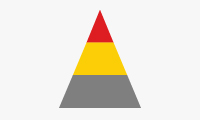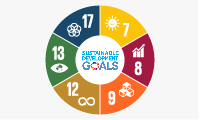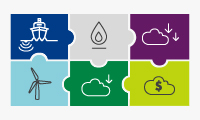Divestments
Shell made significant progress towards the completion of our three-year $30 billion divestment programme, which is an important part of our strategy to reshape into a world-class investment and to strengthen our financial framework.
Highlights in 2017
- We completed divestments worth around $22.3 billion over the period 2016-2017.
- We sold our stake in Australian energy company Woodside Petroleum.
- We sold the majority of our oil sands interests in Canada.
- We completed the sale of a number of UK North Sea assets and our onshore upstream operations in Gabon, and announced the divestment of our upstream business in Ireland.
We made good progress on our 2016-2018 $30 billion divestment programme by the end of 2017, with deals worth $22.3 billion completed.
We sold non-operated shareholdings in assets as well as entire businesses. In each transaction, Shell carried out extensive due diligence to ensure that the buyer had the capabilities to uphold, or even improve, delivery with respect to safety, security, the environment and responsibilities to neighbouring communities.
Divesting Canadian oil sands
In March 2017, we announced the sale of the majority of our oil sands assets to Canadian Natural Resources Limited (Canadian Natural) and reduced its share in the Athabasca Oil Sands Project (AOSP) from 60% to 10%. Canadian Natural became the operator of the AOSP upstream mining assets from June 1, 2017.
We continue to operate the Scotford complex, which includes a bitumen upgrader and the Quest carbon capture and storage project (Shell interest 10%) located next to the refinery and chemical plants.
To ensure a successful transition, we developed an employee engagement plan in line with our Code of Conduct and antitrust requirements to address questions from the 3,000 staff moving to Canadian Natural. We worked with local community and business leaders, including indigenous communities, to respond to questions and concerns. We assumed the financial obligation for agreed communities and encouraged submissions for social investments up to the divestment date. We formalised the handover and assignment of any established future obligations. Once all regulatory approvals were in place and full operational readiness and conditions were met for a safe transition, we transferred assets and operatorship to Canadian Natural.
Throughout the divestment process, we ensured our customers and suppliers were updated on the transaction to manage expectations and ensure there were no service disruptions.
Selling Gabon onshore interests
In March 2017, we announced that after 50 years of activities we would divest all our onshore oil and gas operations and related infrastructure in Gabon. We sold our onshore operated and non-operated interests in the country to Assala Energy Holdings, a new energy company funded by US investment firm The Carlyle Group.
From early in the sales process, we communicated the sensitivity of the ecologically diverse habitat to all potential buyers. During the due diligence process, we contracted an independent social and environmental consultancy to provide insight into the impact of operations in and around the onshore facilities. The Carlyle Group also hired a separate independent consultancy to provide insights and to verify the findings of the original due diligence work.
We engaged a cross section of community, government and non-governmental organisations to explain the divestment and introduce the new owners to the communities likely to be affected. The sale to Assala Energy was agreed with the intention that operations would continue.
We expect Assala Energy to make managing the impact of its operations on biodiversity and communities as high a priority as we did. To date, Assala Energy has confirmed it will continue the Gabon biodiversity programme which we had worked on previously with our research partner the Smithsonian Conservation Biology Institute.
 Sustainability at Shell
Sustainability at Shell
 Sustainable development goals
Sustainable development goals
 About our data
About our data
 Energy transition and climate change
Energy transition and climate change